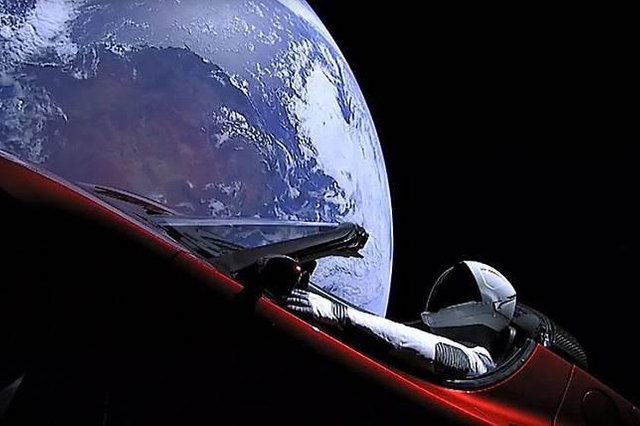
Earlier this month, Elon Musk successfully launched the Tesla Roadster and Starman mannequins into orbit using the Falcon Heavy. Now, both are moving towards Mars and are predicted to reach a distance of 69 million miles from the planet on June 10, 2018 and the farthest point of the sun on November 9, 2018.
From there, the gravity of the sun will drag them back into the inner solar system and make them repeatedly cut off the orbits of Mars, Earth and Venus; including in 2091 when both were near our planet for the first time.
However, we do not have to worry if Tesla's car crashed into the earth. The reason, scientists who are experts in the field of experts in the field of orbital dynamics have calculated this and decided that Tesla and Starman mankein cars only have six percent probability after a million years to hit the earth.
The results were obtained by Hanno Rein of the University of Toronto, Canada and colleagues after doing research with a model of planetary motion.
Published in a study entitled The Random Walk of Cars and Their Collision Probabilities with Planets, the above possibility did increase to 10 percent after 3 million years and 50 percent after 10 million years. The Tesla car is also predicted to have a 2.5 percent chance of crashing into Venus.
However, Rein insists that if Tesla's car did hit the earth, it would likely burn before it could reach the surface of this blue planet. "There is absolutely no risk to health and safety (us)," Rein said
Congratulations, you were selected for a random upvote! Follow @teukualifzar and upvote this post to increase your chance of being upvoted again!
Read more about @teukualifzar here.
Downvoting a post can decrease pending rewards and make it less visible. Common reasons:
Submit